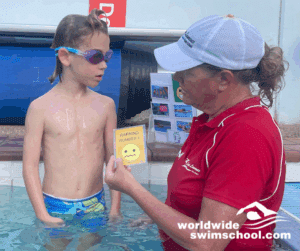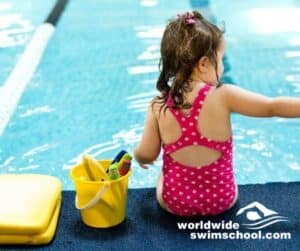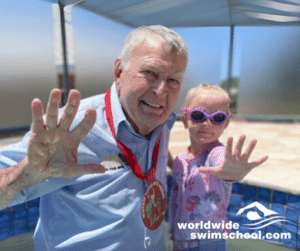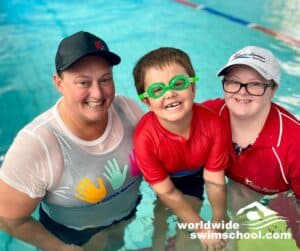Swim teachers and swim coaches are a swimmer’s initial introduction to the aquatic environment for safety, technique and stroke development. Once a swimmer has honed their swimming skills and is competent with all four strokes, it is time to advance to a squad program. Squad swimmers work closely with their instructors many times a week depending on skill level and ambition. This article will discuss becoming an instructor for squad swimmers. These instructors are called coaches and usually work with junior to elite level swimmers.
Swimming as a Learning Experience
Becoming a successful Swim Coach can be a satisfying experience within the aquatic industry. Teaching strategies used as a coach are different from the Infant and Learn to Swim programs but can be just as rewarding. Laurie Lawrence has been fortunate enough to guide athletes from a frightened beginner unable to put their face in the water all the way to participating and winning medals at the Olympic Games. What an achievement for coach and athlete – and a great learning experience for everyone involved.
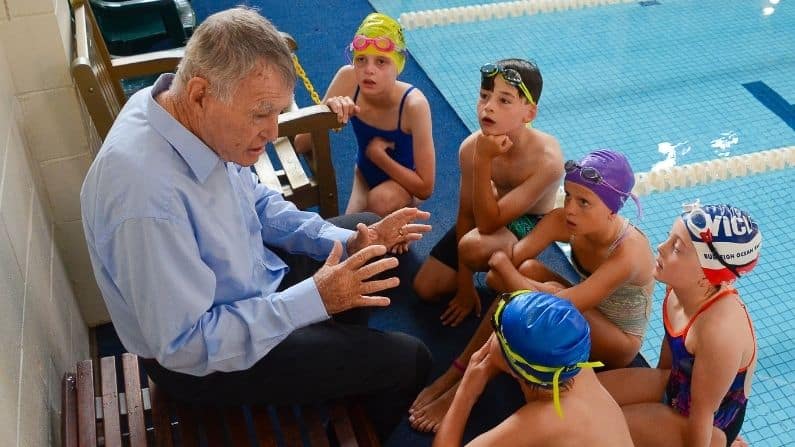
Challenges Faced by a Swim Coach
As swimmers get older and more practiced in the sport, the challenges for coaches change from just imparting knowledge about the intricacies of a stroke to keeping classes fun and social while engaging swimmers imagination to providing a good quality session which will improve speed, fitness and ability. A Swim Coach is a master juggler, entertainer, lecturer, expert, friend and more. How can we become an accomplished coach of swimmers?
Laurie is an extremely successful Swim Coach who has produced Australian representatives, Olympic medalists and World Record Holders within his career. He has been involved in 8 Olympic Games, worked with athletes from all over the world and has extensive training and experience in coaching swimmers of all ages and abilities.
Laurie’s recipe for success in life is based on the following:
- Dream
- Plan
- Work
- Persist
- Refocus
Swimming coaching, like any new skill, may not come naturally to all individuals. It is with constant practice, support and guidance that most skills are learned, improved and successfully presented.
Dream
“Nothing happens unless first a dream."
- Carl Sandburg
Know what you want from your Swim Coach experience. If you set goals and know what you are working towards, it will make your coaching experience more enjoyable and allow you to work towards these goals.
Firstly identify your dream. Then decide how your dream will work:
- Do you want to recruit an existing athlete and foster success?
- Do you want to build the skills from scratch and develop a champion?
All of these dreams can be achievable with the right amount of work and require an expectation of excellence or perfection. This starts from the coach and trickling down within the squad and onto each individual swimmer.
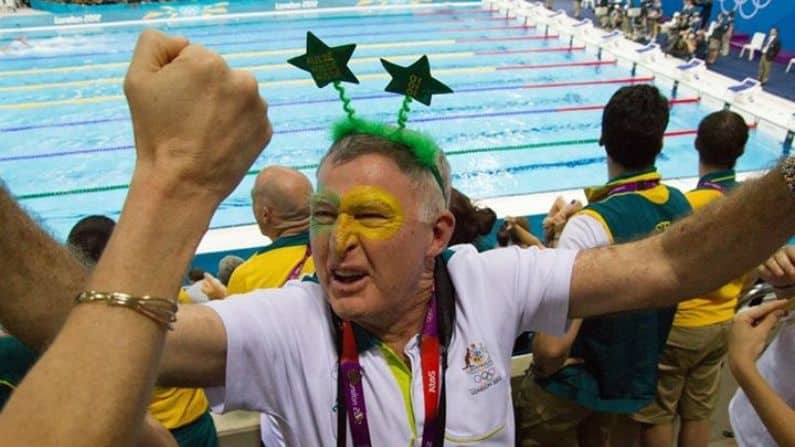
Plan
“A goal without a plan is just a wish.”
- Antoine de Saint-Exupery.
Planning is a huge part of any success story and is used in all aspects of life. A road map is a plan used to get from one destination to the other. If you get the foundations right – everything else will follow. When formulating your plan to be a Swim Coach, ask yourself:
- What is your goal?
- How long will it take to achieve?
- What do you need to know?
- How are you going to learn?
Work through your coaching plan so you know all aspects of this inside and out. Arm yourself with the knowledge you will need for your journey. You may need to further your qualifications with the governing body in your country before you go ahead and start your coaching career.
Work
“Nothing easy is worth doing.”
- Matt Mann
It will take time to achieve your goals. You may not achieve your goals immediately and you may have to try different approaches to your coaching to achieve the results you’re looking for. This is the “work” phase of the Recipe for Success. Here are some things to remember during this time:
- Build a culture of excellence within your workplace – pay attention to details and push for quality in every aspect of your job
- Expect your swimmers to be on time? Don’t allow them arrive at the pool earlier that you. If they do, ensure it doesn’t happen again
- Expect your swimmers not to miss any laps? Walk every lap with them. If they are working hard and participating, then make sure you are too
- Ensure everyone is aware of your expectations – swimmers, parents, staff and co-workers, friends and family.
Persist
“Persist and persevere, and you will find most things that are attainable, possible.”
- Philip Stanhope
Success won’t come overnight. Coaching is a lengthy process and hours upon hours, laps upon laps, sweat, tears, laughter and fun. However, it’s important to stick with it because persistence will pay off.
A good Swim Coach will recognise when a swimmer needs a reminder to continue their training and working towards their goals. Many parents are also a huge part of any swimmer’s success story. Swimming requires time, patience and a huge commitment from those involved. Parents are often providing lifts to and from training, nutrition, social and emotional support, financial support and much more.
So, it’s important that coaches constantly remind parents to persist in their endeavours to support the swimmers in their family.
Refocus
“Don’t dwell on what went wrong. Instead, focus on what to do next. Spend your energies on moving toward finding the answer.”
- Denis Waitley
Things may not always go to plan. However, it’s important to constantly refer to your Recipe for Success. If things aren’t going the way you hoped, you may have to change one of the earlier steps. Or your plan may need to be tweaked to realise your plan's full potential.
Once you do achieve your goal, it will be time to Refocus and set yourself new challenges. It’s important that great coaches continually evaluate their successes in their recipe for success.
If things don’t work out it’s important that the coach does not see them as a “failure” but a learning experience. Mistakes can make us disillusioned and defeated or they can make us stronger and more determined.
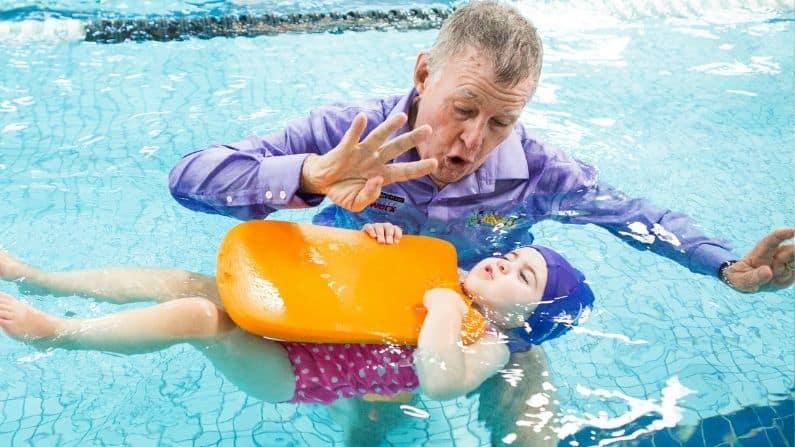
Conclusion
Coaching can be a whole new challenge within the aquatics industry with many personal and professional hurdles and challenges. It can also lead you into other sports with a swimming focus such as Triathlons, Open-Water, Surf Lifesaving, Water Polo and Underwater Hockey. As with any other job in the aquatics industry, coaching offers the opportunity to work with swimmers of many different ages, improve not only their skill but their self-worth and confidence and shape their attitudes for the rest of their life. It can be a very rewarding job that can make a difference in not only the swimmer but the coaches’ life too. Good luck in your future coaching endeavours and don’t forget the Recipe for Success – Dream, Plan, Work, Persist, and Refocus!
Join our community and keep up to date with new articles, special offers - it is free to join!
Looking for more information on learning how to swim - don't go past the Swim Library.

